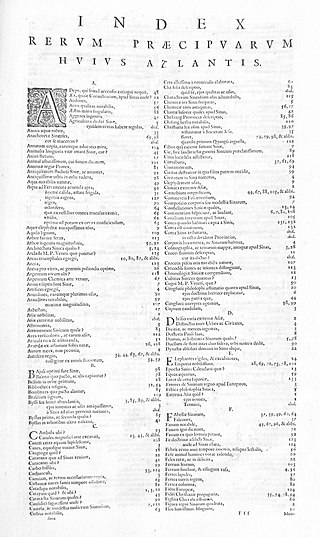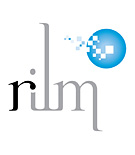Related Research Articles

Bibliography, as a discipline, is traditionally the academic study of books as physical, cultural objects; in this sense, it is also known as bibliology. English author and bibliographer John Carter describes bibliography as a word having two senses: one, a list of books for further study or of works consulted by an author ; the other one, applicable for collectors, is "the study of books as physical objects" and "the systematic description of books as objects".
MEDLINE is a bibliographic database of life sciences and biomedical information. It includes bibliographic information for articles from academic journals covering medicine, nursing, pharmacy, dentistry, veterinary medicine, and health care. MEDLINE also covers much of the literature in biology and biochemistry, as well as fields such as molecular evolution.

This page is a glossary of library and information science.
The SAO/NASA Astrophysics Data System (ADS) is a digital library portal for researchers on astronomy and physics, operated for NASA by the Smithsonian Astrophysical Observatory. ADS maintains three bibliographic collections containing over 15 million records, including all arXiv e-prints. Abstracts and full-text of major astronomy and physics publications are indexed and searchable through the portal.

An index is a list of words or phrases ('headings') and associated pointers ('locators') to where useful material relating to that heading can be found in a document or collection of documents. Examples are an index in the back matter of a book and an index that serves as a library catalog. An index differs from a word index, or concordance, in focusing on the subject of the text rather than the exact words in a text, and it differs from a table of contents because the index is ordered by subject, regardless of whether it is early or late in the book, while the listed items in a table of contents is placed in the same order as the book.
Controlled vocabularies provide a way to organize knowledge for subsequent retrieval. They are used in subject indexing schemes, subject headings, thesauri, taxonomies and other knowledge organization systems. Controlled vocabulary schemes mandate the use of predefined, preferred terms that have been preselected by the designers of the schemes, in contrast to natural language vocabularies, which have no such restriction.
MathSciNet is a searchable online bibliographic database created by the American Mathematical Society in 1996. It contains all of the contents of the journal Mathematical Reviews (MR) since 1940 along with an extensive author database, links to other MR entries, citations, full journal entries, and links to original articles. It contains almost 3.6 million items and over 2.3 million links to original articles.

In library and information science, cataloging (US) or cataloguing (UK) is the process of creating metadata representing information resources, such as books, sound recordings, moving images, etc. Cataloging provides information such as author's names, titles, and subject terms that describe resources, typically through the creation of bibliographic records. The records serve as surrogates for the stored information resources. Since the 1970s these metadata are in machine-readable form and are indexed by information retrieval tools, such as bibliographic databases or search engines. While typically the cataloging process results in the production of library catalogs, it also produces other types of discovery tools for documents and collections.
A bibliographic database is a database of bibliographic records. This is an organised online collection of references to published written works like journal and newspaper articles, conference proceedings, reports, government and legal publications, patents and books. In contrast to library catalogue entries, a majority of the records in bibliographic databases describe articles and conference papers rather than complete monographs, and they generally contain very rich subject descriptions in the form of keywords, subject classification terms, or abstracts.

Répertoire International de Littérature Musicale, commonly known by its acronym RILM, is a nonprofit organization that offers digital collections and advanced tools for locating research on all topics related to music. Its mission is "to make this knowledge accessible to research and performance communities worldwide….to include the music scholarship of all countries, in all languages, and across all disciplinary and cultural boundaries, thereby fostering research in the arts, humanities, sciences, and social sciences." Central to RILM's work and mission is the international bibliography of scholarship relating to all facets of music research.
Index Medicus (IM) is a curated subset of MEDLINE, which is a bibliographic database of life science and biomedical science information, principally scientific journal articles. From 1879 to 2004, Index Medicus was a comprehensive bibliographic index of such articles in the form of a print index or its onscreen equivalent. Medical history experts have said of Index Medicus that it is “America's greatest contribution to medical knowledge.”
Cambridge Scientific Abstracts was a division of Cambridge Information Group and provider of online databases, based in Bethesda, Maryland, before merging with ProQuest of Ann Arbor, Michigan, in 2007. CSA hosted databases of abstracts and developed taxonomic indexing of scholarly articles. These databases were hosted on the CSA Illumina platform and were available alongside add-on products like CSA Illustrata. The company produced numerous bibliographic databases in different fields of the arts and humanities, natural and social sciences, and technology. Thus, coverage included materials science, environmental sciences and pollution management, biological sciences, aquatic sciences and fisheries, biotechnology, engineering, computer science, sociology, linguistics, and other areas.
Inspec is a major indexing database of scientific and technical literature, published by the Institution of Engineering and Technology (IET), and formerly by the Institution of Electrical Engineers (IEE), one of the IET's forerunners.
Subject indexing is the act of describing or classifying a document by index terms, keywords, or other symbols in order to indicate what different documents are about, to summarize their contents or to increase findability. In other words, it is about identifying and describing the subject of documents. Indexes are constructed, separately, on three distinct levels: terms in a document such as a book; objects in a collection such as a library; and documents within a field of knowledge.
Projekt Dyabola is a software for creating and browsing bibliographic data and image collections, specifically targeted to the humanities community. The program is built and maintained by the Biering & Brinkmann company of Germany, and access to a web version is available through subscription. The service is available in six languages.
A bibliographic record is an entry in a bibliographic index which represents and describes a specific resource. A bibliographic record contains the data elements necessary to help users identify and retrieve that resource, as well as additional supporting information, presented in a formalized bibliographic format. Additional information may support particular database functions such as search, or browse, or may provide fuller presentation of the content item.
Academic Search is a monthly indexing service. It was first published in 1997 by EBSCO Publishing in Ipswich, Massachusetts. Its academic focus is international universities, covering social science, education, psychology, and other subjects. Publishing formats covered are academic journals, magazines, newspapers, and CD-ROM.
An abstracting service is a service that provides abstracts of publications, often on a subject or group of related subjects, usually on a subscription basis. An indexing service is a service that assigns descriptors and other kinds of access points to documents. The word indexing service is today mostly used for computer programs, but may also cover services providing back-of-the-book indexes, journal indexes, and related kinds of indexes. An indexing and abstracting service is a service that provides shortening or summarizing of documents and assigning of descriptors for referencing documents.
The International Medieval Bibliography (IMB) is a multidisciplinary bibliographic database covering Europe, North Africa and the Middle East for the entire period from AD 300 to 1500. It aims to provide a comprehensive, current bibliography of articles in journals and miscellany volumes published worldwide in over 35 different languages. The organisation and publication of the IMB is a collaboration between the University of Leeds and the Belgian publisher Brepols.
References
- ↑ Reitz, Joan M. (2004). Dictionary for Library and Information Science. Westport, Connecticut: Libraries Unlimited. p. 353. ISBN 1-59158-075-7.
- ↑ Prytherch, Ray (2000). Harrod's Librarians' Glossary and Reference Book (Ninth ed.). Hants, England: Gower. p. 366. ISBN 0-566-08018-4.